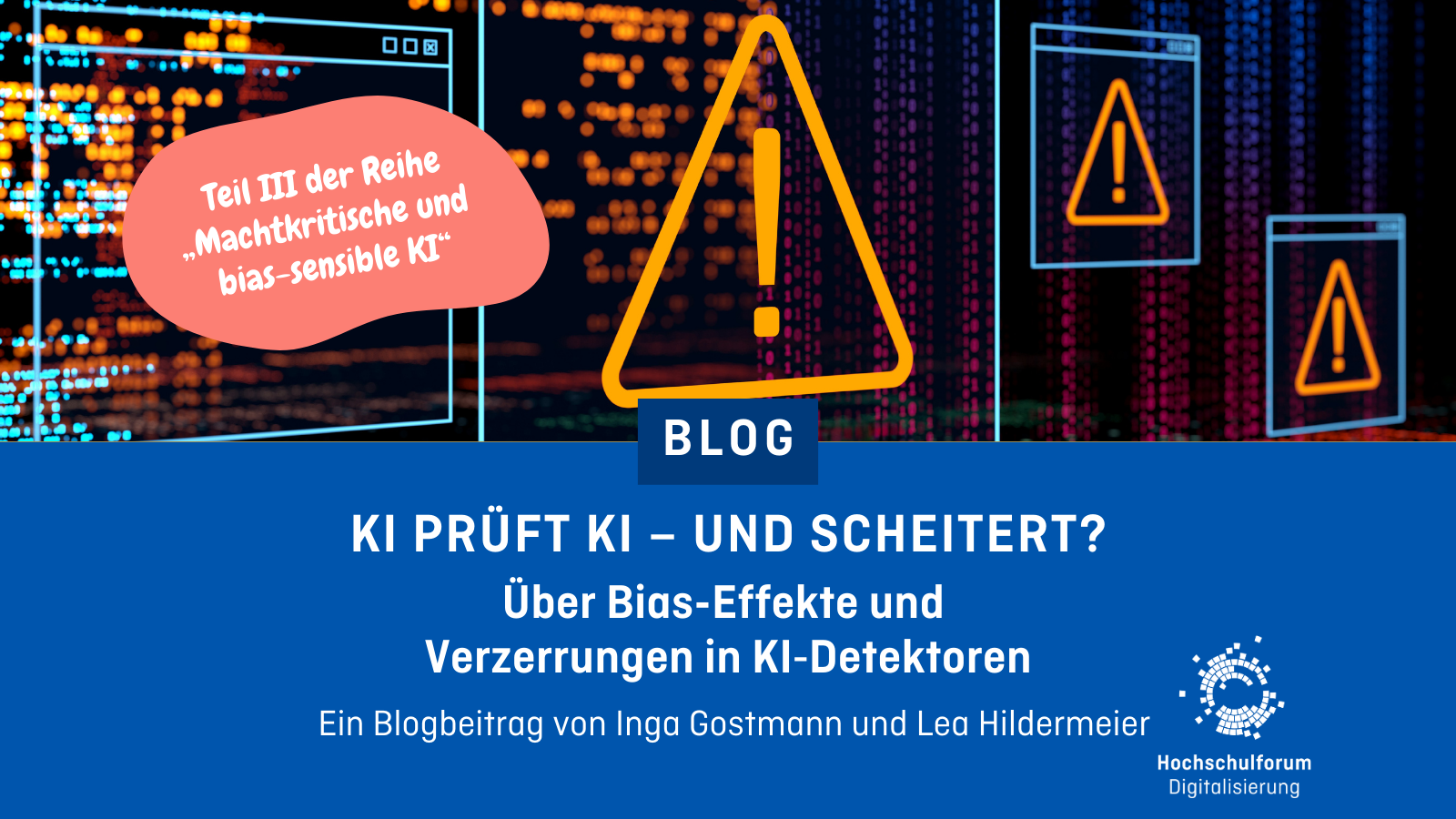Reinventing education in the digital era – four scenarios
Reinventing education in the digital era – four scenarios
07.07.17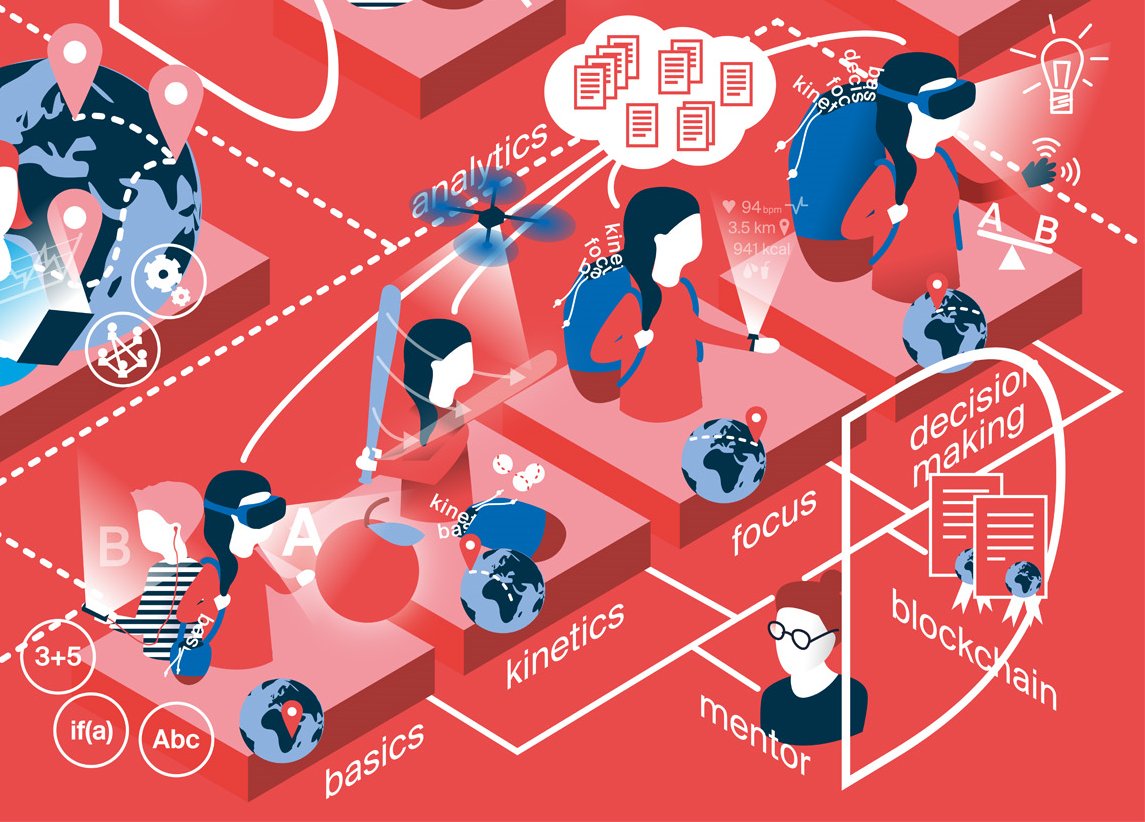
From 27 to 30 June 2017, a group of 21 students from 11 countries participated in our workshop event “Reinventing education in the digital era“. They developed scenarios for how education might look like in 2037 and presented them at the Global Learning Council Summit 2017. With this article, we document the scenarios that the students developed.
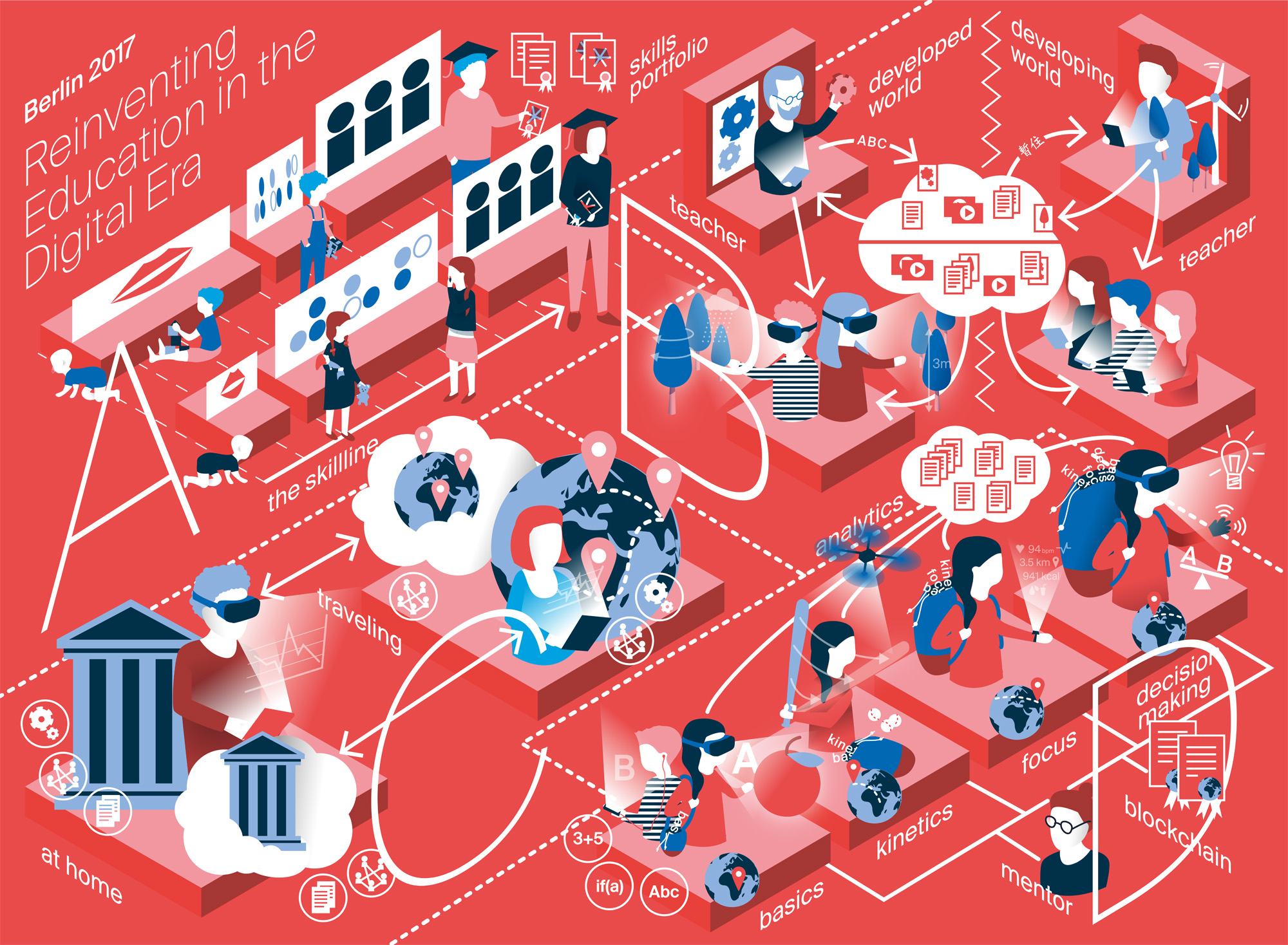
On this picture above, you can see all four scenarios, marked by the letters A, B, C and D.
Group A: Evolution of Education = Skillacation
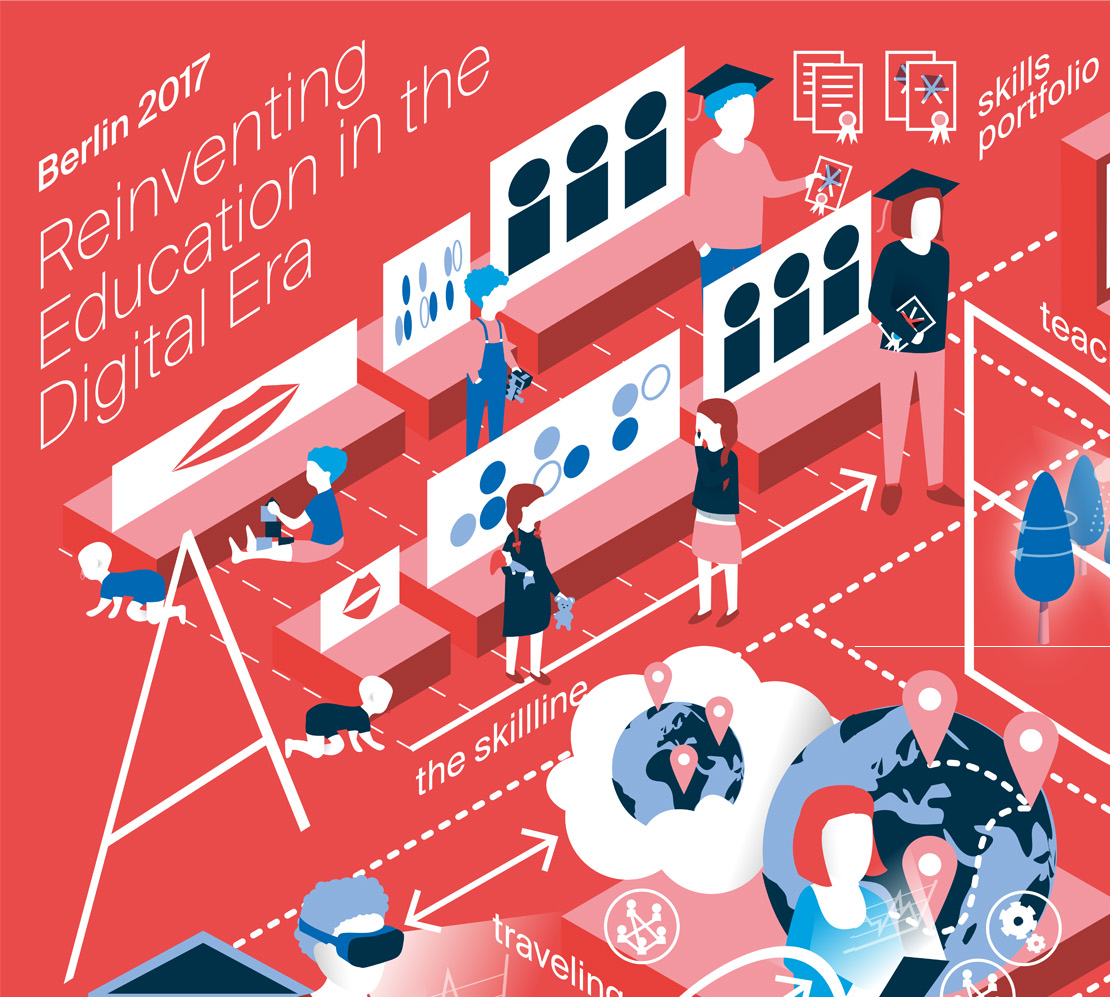 The future of education rests on its ability to adapt to the future disruptions in the labour market. The disruptions can be driven by increment in technological innovation or other geo-political factors.
The future of education rests on its ability to adapt to the future disruptions in the labour market. The disruptions can be driven by increment in technological innovation or other geo-political factors.
• The future education system should be skill based and not age based.
• The teaching in the future classrooms would be topic based and not subject based.
• The assessment would be done on the level of skill gained by the learner.
The skills would be divided chronologically in 3 levels, namely:
• 1st level skill set: communication and language. Skill examples: vocabulary, grammar, empathy, group discussion, etc.
• 2nd level skill set: Applied logic and reasoning. Skill examples: maths, physics, biology, arts and music, social sciences, history, etc.
• 3rd level skill set: Collaboration and specialization. Skill examples: software development, advanced algebra, trigonometry, etc.
The 1st level skill set would need inter-human communication and also inter-cultural communication using specialized translation devices. This would allow for an increase in empathy and inter-cultural relations.
The education system is flexible and can be adapted to different scenarios. This is a systematic change in the transition from old to new ways of learning. The classrooms can be supplemented with augmented/virtual reality devices in order to facilitate learning for everyone, everywhere. The system would undervalue BA and MA, and the future classrooms would be holistic, open, and skill centred.
Group B: Global Learning Cloud
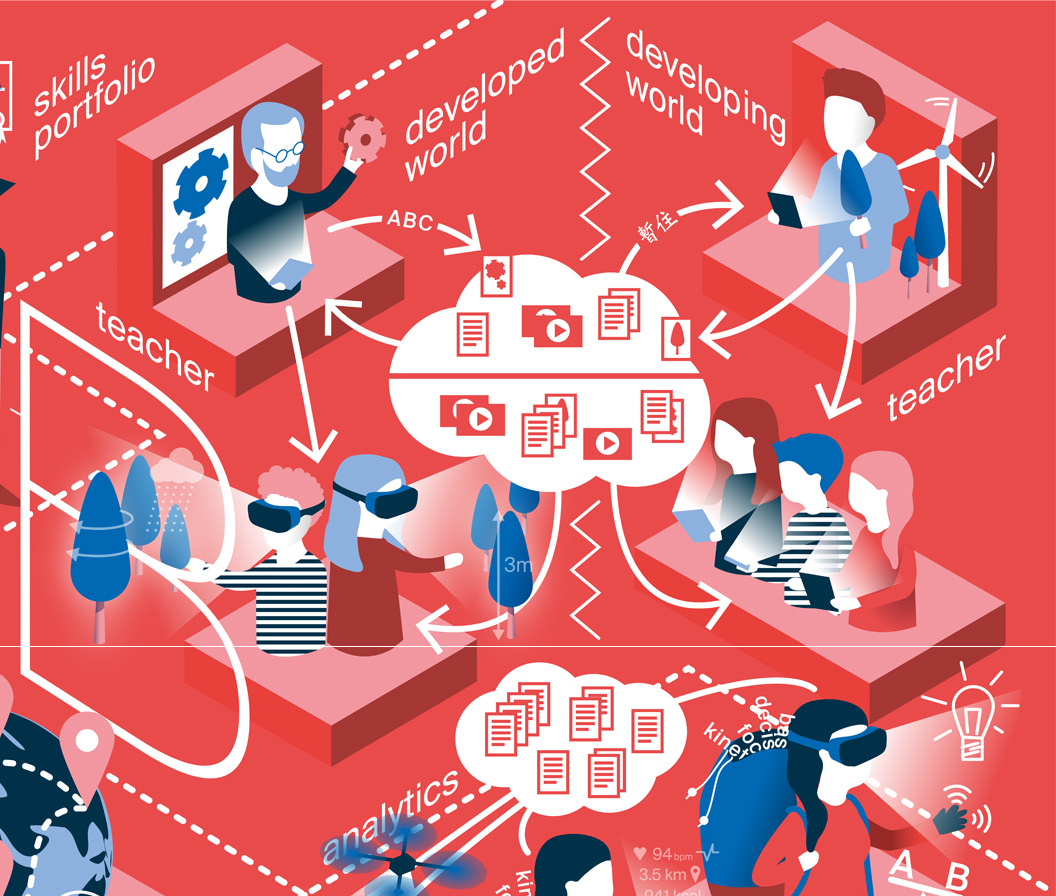 The scenario describes four pictures in the context of education in the year 2037. These four elements compare learning and teaching scenarios in developing and developed countries and aim to identify a connection between them. Tina lives in Germany and is 7 years old. She is in school. The classroom can be described as an open learning environment, where they have access to the newest digital devices equipped with the latest learning software. There is also a “live room”, a virtual environment, here pupils can explore different “worlds” such as exploring the inside of the human body or experiencing the forest. In the scenario Tina solves the question “How does the squirrel survive in winter?” together with some of her colleagues by walking through the virtual forest. To obtain further information, they can ask their mentor. The teacher is a facilitator who creates the setting and the framework for the pupil’s learning path.
The scenario describes four pictures in the context of education in the year 2037. These four elements compare learning and teaching scenarios in developing and developed countries and aim to identify a connection between them. Tina lives in Germany and is 7 years old. She is in school. The classroom can be described as an open learning environment, where they have access to the newest digital devices equipped with the latest learning software. There is also a “live room”, a virtual environment, here pupils can explore different “worlds” such as exploring the inside of the human body or experiencing the forest. In the scenario Tina solves the question “How does the squirrel survive in winter?” together with some of her colleagues by walking through the virtual forest. To obtain further information, they can ask their mentor. The teacher is a facilitator who creates the setting and the framework for the pupil’s learning path.
Gandalf is the father of Tina and is a Professor at a university. As in all universities lectures are digitalized. He creates his lectures by using a smartboard. The screen and his voice gets recorded. There are no books in his office, since all the information is available online. At the moment, he is doing a biology course for his students from all over the world. Gavon is one of Gandalf’s special students. But who is Gavon?
Gavon is a 25-year-old committed and motivated teacher in a remote village in Nigeria. He can attend Gandalf’s biology courses because of access to the internet, digital devices and, most importantly, because of instant language translation. Because of these courses, the educational gap is shrinking. And there are other people, who are benefitting from the course.
Amir is a pupil in Gavon’s class, where basic digital devices connected to the internet are available. With these devices, the pupils experience new ways of learning and teaching, like watching learning videos and using educational software. With the support of Amir, they can gain more insights in specific learning areas. With this connection, we promote life-long-learning and create equal opportunities for mankind.
Group C: Learning Glocally
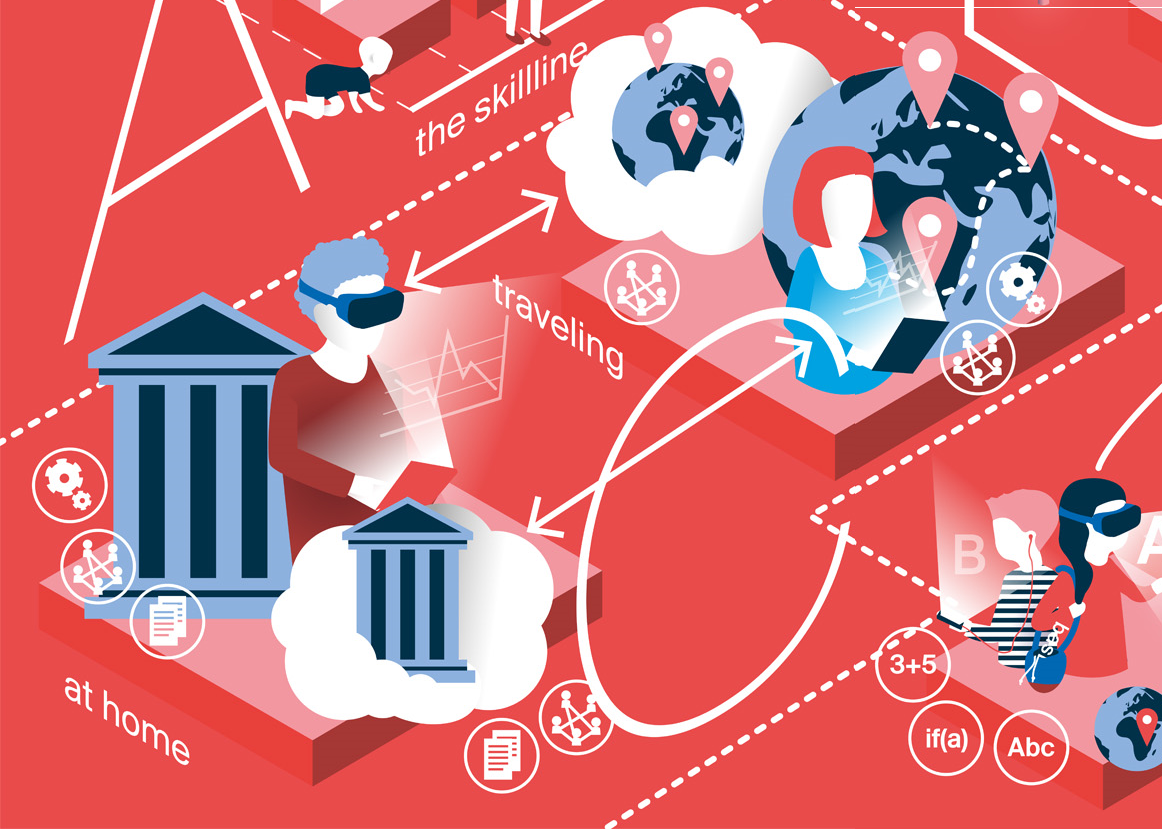 In the future the University serves as a backbone for different student target groups. This could be imagined in the scope of following two learning processes:
In the future the University serves as a backbone for different student target groups. This could be imagined in the scope of following two learning processes:
1. Learning by physically traveling and reaching to different places in the world. Simultaneously being provided with methodological and theoretical knowledge through the university online.
2. Learning locally bounded, by attending classes online and offline. Through virtual/mixed/ augmented reality the student can apply theoretic knowledge and connect to professionals.
Jasmine, the ‘Traveler’: Jasmine physically travels to different places to gain relevant experiences and knowledge in projects for her prospective career by getting in touch with professionals and different environments. By then digital devices such as the 3D printer have become a basic tool for students. In Jasmine’s case it helps her to construct the items she needs on her travel to rural areas or natural environments. On the other hand she stays connected with peers, family and mentors from the university via a multifunctional device for communication with mentors and for knowledge sourcing. Further the device is used to capture the knowledge and techniques learned on her journey and to share it on a virtual/digital platform for peers, and to save it for her future career. Besides, the university can refer to the digital results of her projects for the recognition of her academic achievements.
Paul, the ‘Homie’: His learning experience is inverted as compared to the ‘Traveler’. He acquires knowledge by attending seminars in the provided spaces from the university, such as learning hubs or maker spaces. The University provides Paul with essential digital devices, such as virtual lenses, 3D printers, tools for mixed and augmented reality to work on specific projects, application projects and holographic tools. Mentors supervise Paul and teach him methodological skills for acquiring knowledge in an efficient way. Since Paul is interested in medical techniques he conducts trials with newly developed tools. Therefore he uses the virtual conference room to exchange experiences and for feedback. Thus Paul does not use his physical body to travel in space but is rather cognitively traveling. Also his virtually gained knowledge is going to be recognized by the University for his aspired career.
What is the key role of the university? The University serves as an institution that guides students in their learning journeys with the goal to acquire key competences. It provides them with resources such as technical devices and mentoring programs, learning hubs and networks. Giving students more freedom to create their own curricula creates self-reliant, creative individuals who encounter problems with the help of critical thinking. Problem-solving skills or problem-based learning is seen as a key competence. This aspect marks the difference to what normal machines are not able to learn.
Group D: Technologically Enhanced Learning Path
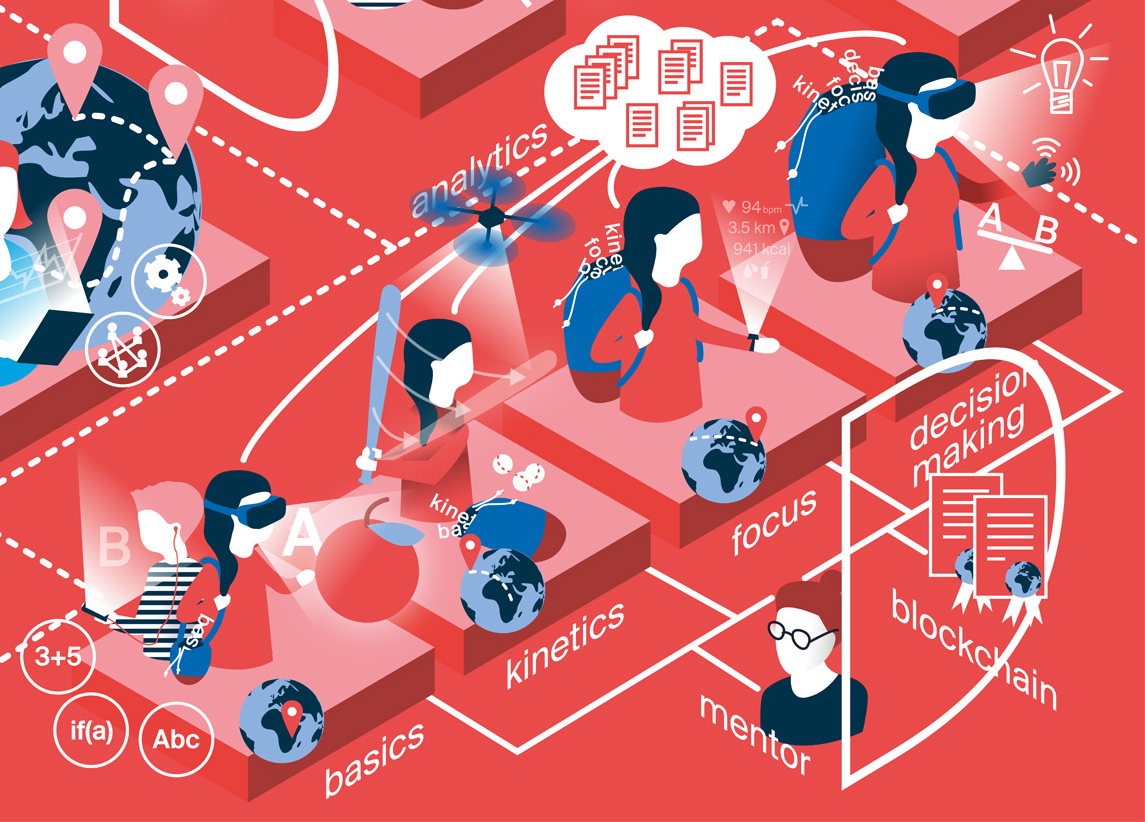 The scenario is based on the skills that will be relevant in 20 years to distinguish humans from machines. These skills include literacy (reading, coding, mathematics etc.), the ability to focus, the capacity to use your body properly (kinetics), decision making capacities through critical thinking and interpreting given data as well as the ability to interact with fellow humans using soft skills (emotional intelligence, communication, empathy etc.).
The scenario is based on the skills that will be relevant in 20 years to distinguish humans from machines. These skills include literacy (reading, coding, mathematics etc.), the ability to focus, the capacity to use your body properly (kinetics), decision making capacities through critical thinking and interpreting given data as well as the ability to interact with fellow humans using soft skills (emotional intelligence, communication, empathy etc.).
Taking these skills as fundamental, the scenario is looking at 6-year old Samantha who is evolving in a world where analysis helps to monitor and provide live feedback on her educational progress. Blockchain technology allows mobility through universal and decentralized certification. Traditional learning institutions have been disrupted and replaced by new formats such as Forums. In developed countries these Forums offer the space to work basically anywhere (parks, homes, train, open space etc.) with fellow students. In developing countries the forums are even more important as they offer the necessary facilities to make use of the available education opportunities. The Forums are located in specialized buildings that provide smart learning facilities and mentors guiding the students. Mentors are trained individuals and your personal education guides suiting your personal needs and providing you with necessary information and tools.
Samantha starts her education in Osogbo, a rural town in Nigeria, where she acquired basic skills such as reading, coding, basic math. This was done with the aid of smart glasses, games that were provided in the forum with the help of a mentor who tracked her progress. During her learning process, she was able to collaborate with other students from around the world through online forums. Ten years later, she moved to New York.
The current educational system helps her to maximize her physical appearance in order to keep her healthy. For instance, drones tracked her movements, holograms showed her posture, analysed it and showed her, if necessary, how to do it properly. When she is 20 years old she applies for her dream job. Right before the interview her stress level is very high, her heart rate is too. As she needs to focus (she knows this because chips are tracking her body stats) smart glasses give her instructions on how to relax and concentrate starting with her breathing.
Finally, she got her dream job and had to move to Paris. Five years later, she continued her learning process in the forum working with other people on various case studies, which were provided by her company. Furthermore, in order to solve the case, she participated in an online discussion with fellow students regarding the pro’s and con’s of each decision. The impact of each decision was afterwards virtually represented in a simulation in a VR-room.


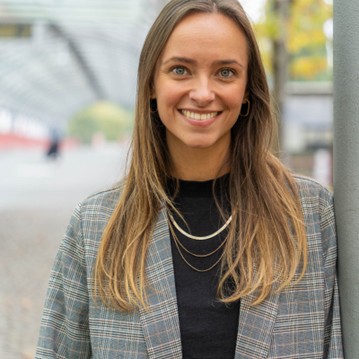 Kim Althoff
Kim Althoff 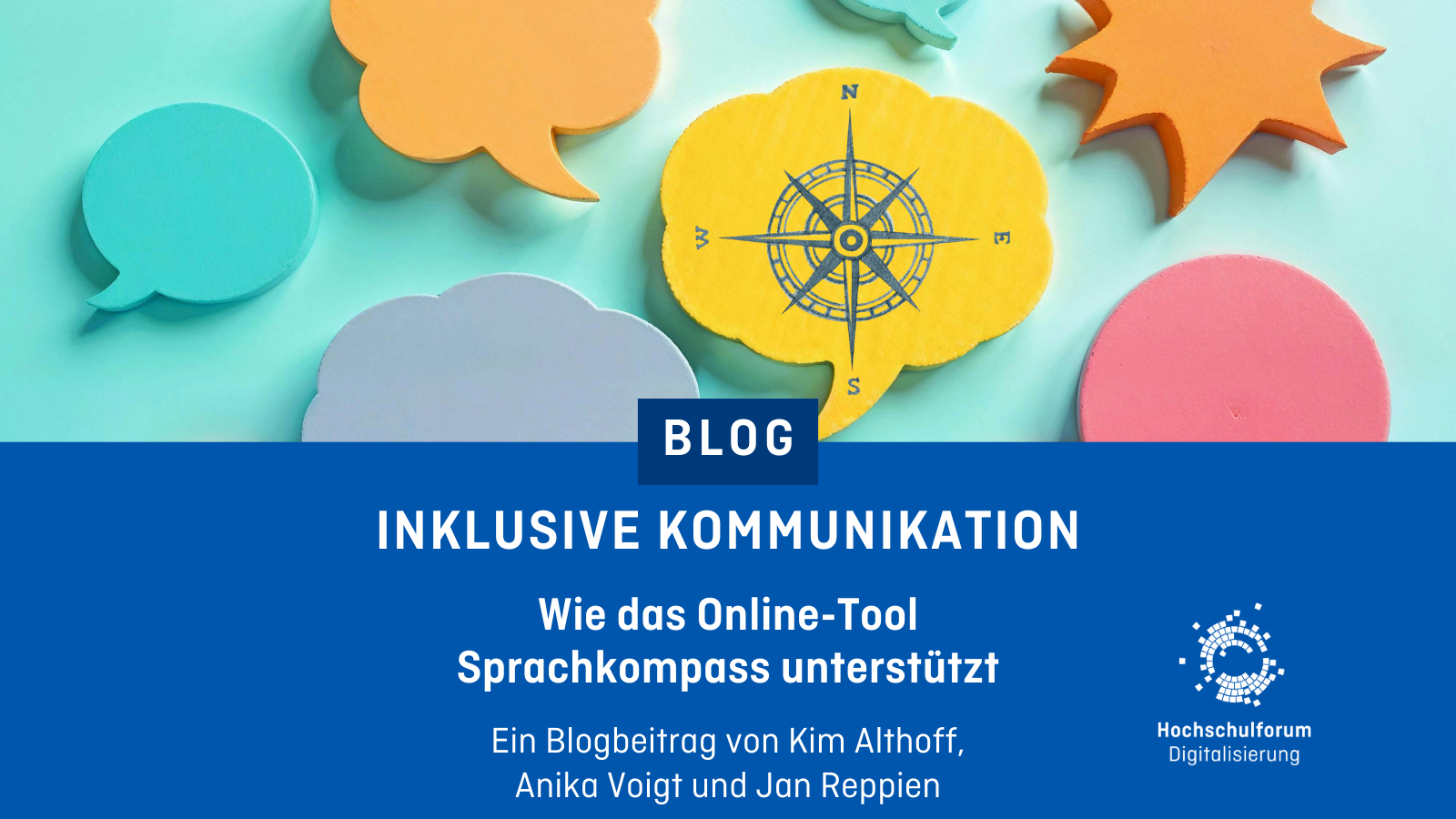
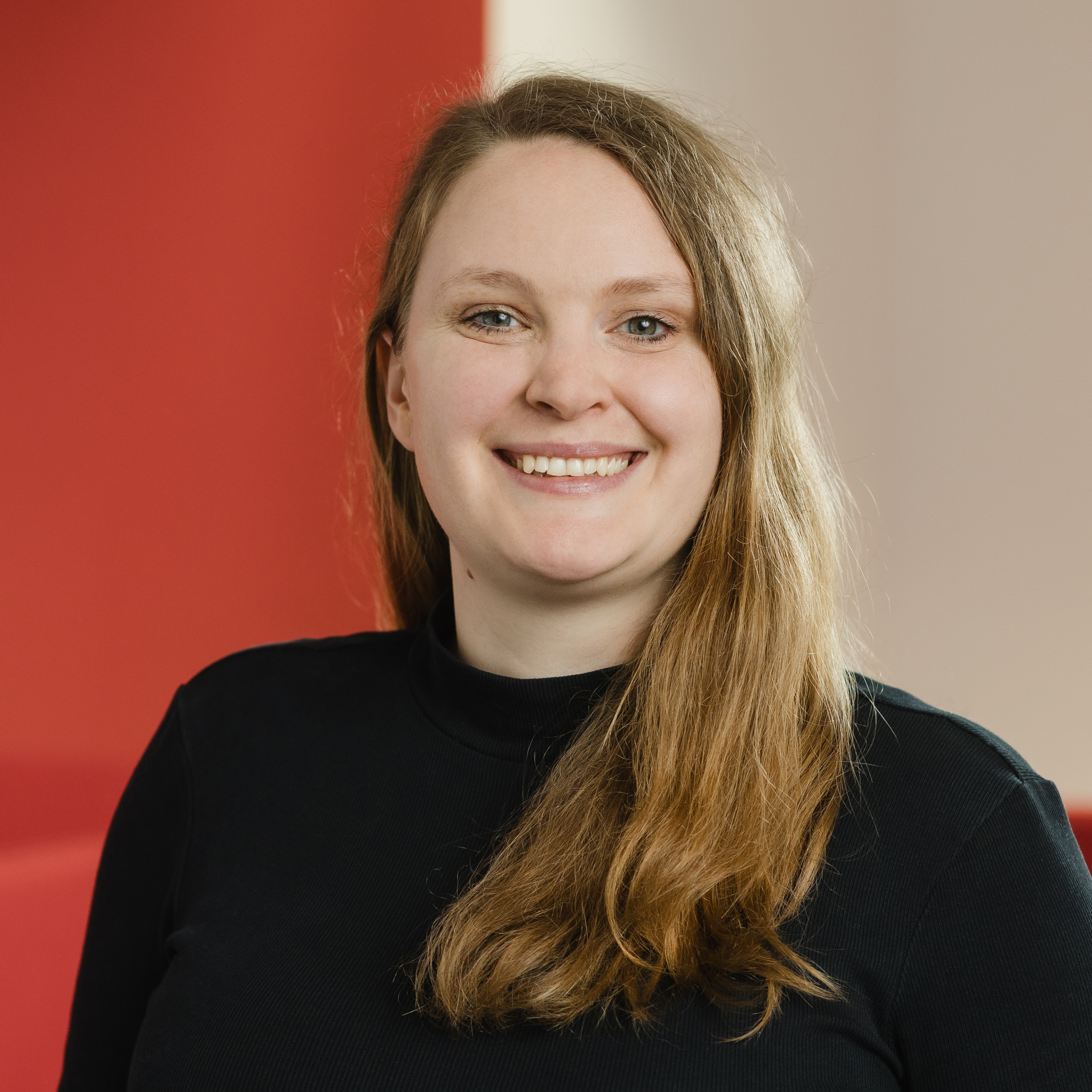 Theresa Sommer
Theresa Sommer 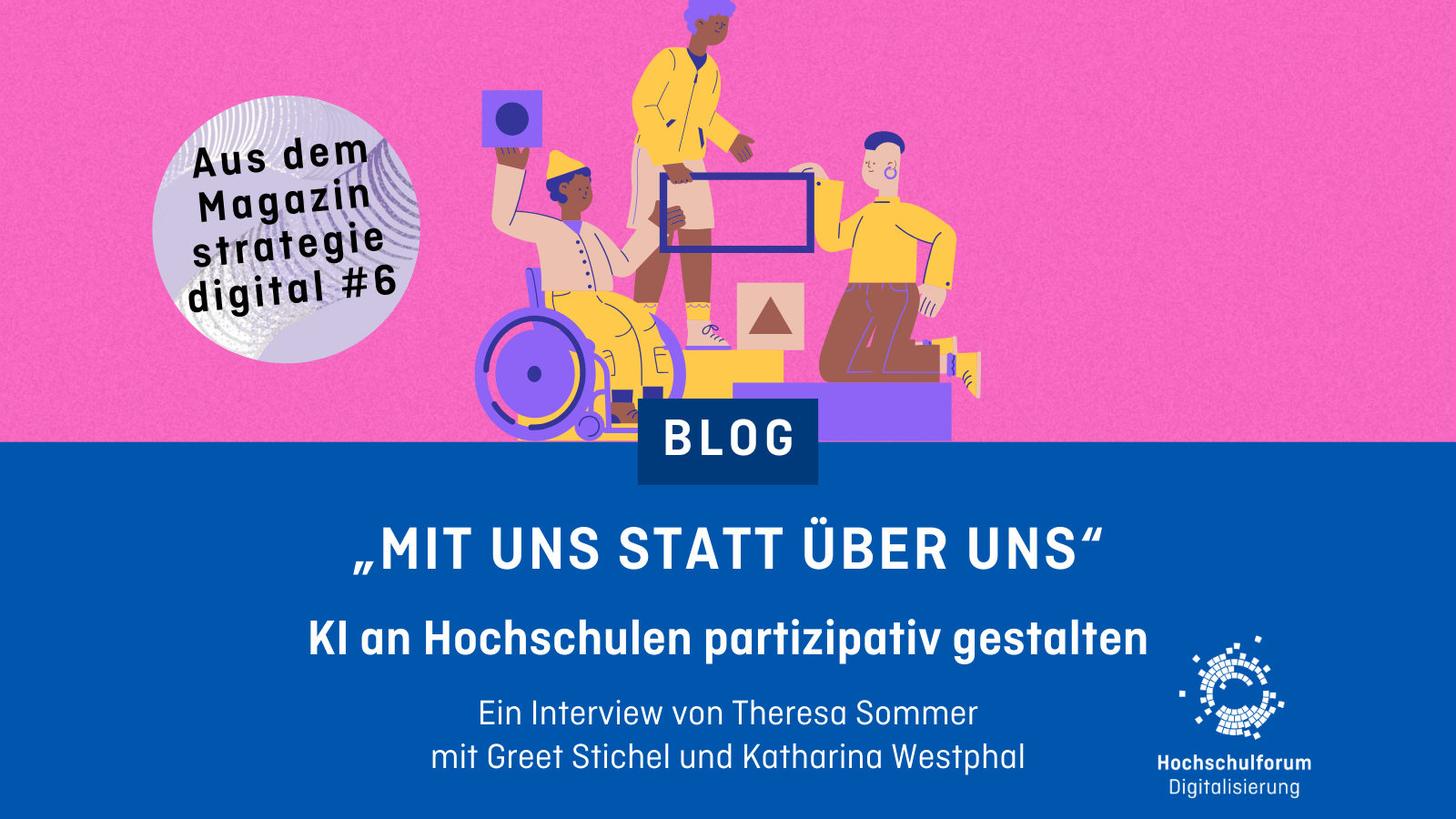
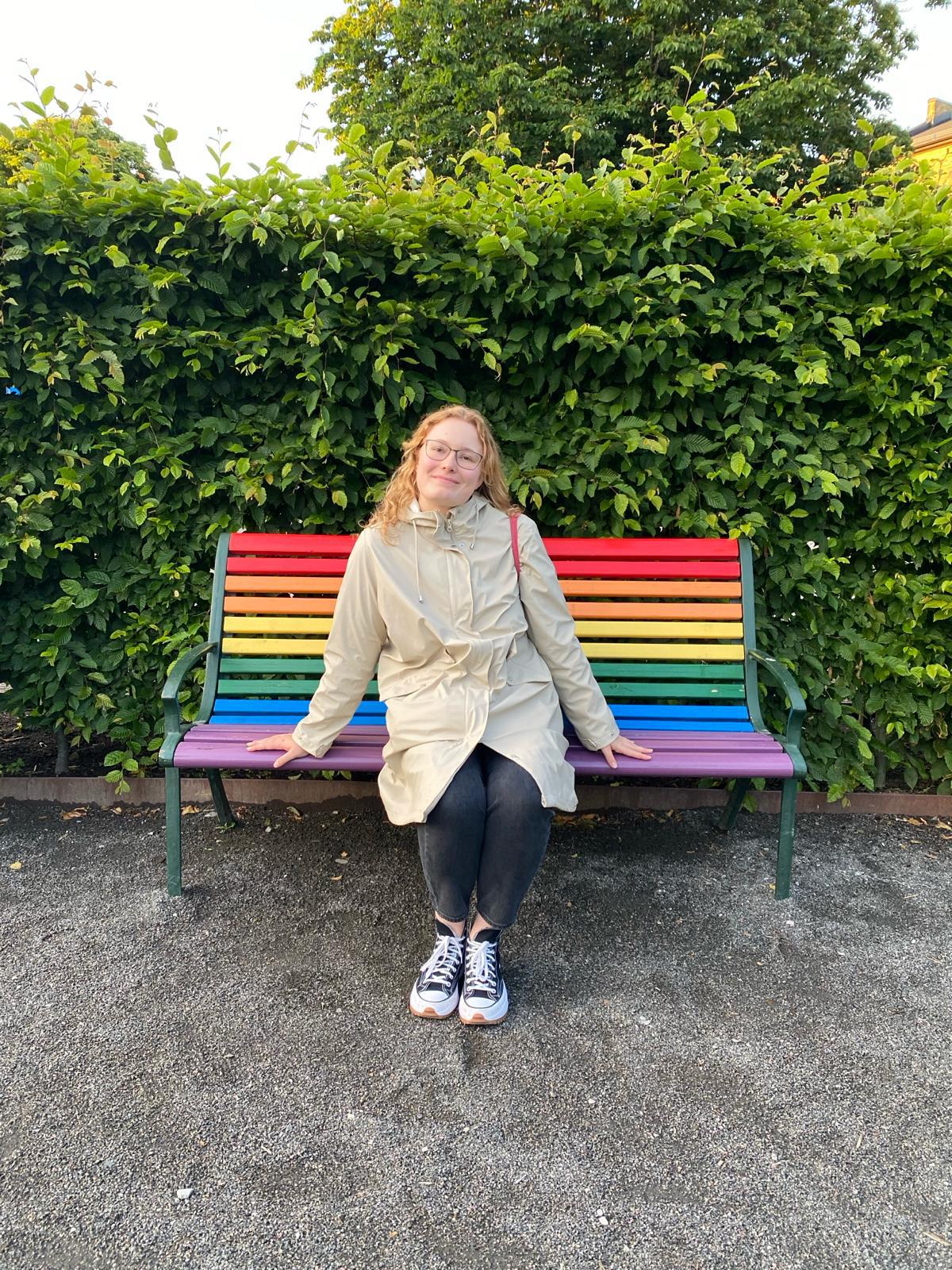 Inga Gostmann
Inga Gostmann 